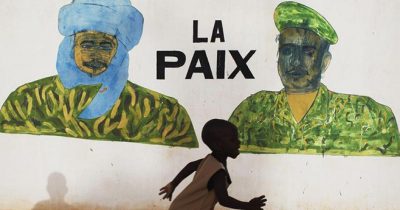Reuters/Joe Penney
By
Aurora M. Granata
How you could learn something new about international politics
The French philosopher Zygmunt Bauman used the expression Liquid Modernity to define a world where the individual has not the possibility to rely on certainties.
Actually, the International community is experiencing the difficulties this situation brings to the domain of international politics. In fact, the chiefs of state are struggling to coordinate an efficient multicultural integration programme with the necessity to make citizens feel safe in their own country. The liquid fear rooted in modern society provoked and implemented an over-securitization process based on a progressive militarization which goes against the aim of the Charter of the United Nations to dismantle the arsenals.
In addition, a raising in conservationist policies in Europe is affecting the interpersonal interactions between different human beings. The proliferation of hate crimes oriented to cultural and gendered minorities are consistent in every country. However, it is true that some nations are more used to diversity, since they had been the subject of a strong decolonization process that had lasted for decades. For instance, France and the United Kingdom spread their knowledge and languages through the world, facilitating the relocation of the ex-settlers. On the contrary, a lot of European countries have been spared for years from this massive migration. Starting from the Nineties, countries like Greece, Spain and Italy became the most attractive places for a great number of migrants coming both from Asia and Africa.
Since I am a young Italian female citizen, I experienced myself the changing in people’s perception towards migrants in their everyday life. Italians are one of the oddest people you could meet, because their soul is the keeper of strong contradictions. Worldwide they are perceived as racists because they seem to reject some categories of foreigners as unpleased, work-stealing and dangerous human beings. Nevertheless, every Italian could swear to know a foreigner who is “really a good person – he/she is not like the others, he/she is honest and a great worker”. They will defend their friend until the very end of a discussion. Still, sometimes some are just unexplainably racists and others act only out of fear.
I want to take the last phrase I wrote as a starting point to tell a personal story which permitted me to discover new horizons. It was a sunny Sunday of early April and I was sitting alone outside a German café eating a delicious strüdel and sipping a Coke. It was so peaceful. After a while a black young man approached my table showing me some books. He asked if I could buy some to help him earn something for the day. I do not know if it is something usual in other countries, but in recent years in Northern Italy it is normal to see young immigrated boys who sell books in the streets. I told him I could not buy them for now, maybe in the future.
Out of nowhere we started talking in French, so he revealed he came from Mali. From now on I will call him B, to respect his identity. He was the same age as me and he said his family died during a conflict in his home country, so he left to seek fortune. I think he talked with me for almost an hour, and I must confess that sometimes I could not understand him very well, since he used some French terms I did not know. Anyhow, he confessed that during his two months staying in Italy I was the first Italian person he spoke to. I suddenly thought that it was really sad. He believed that it was important to be a good and serious person, that it was essential to work to earn a wage and not to choose easier ways to enrich oneself. Then he proposed to me as a future husband; I gently declined and finally I said goodbye to him. When I left he was smiling and the happiness of that conversation spilled over his eyes. I hope I could cheer up his day just a little bit, since I do not know if I will see him again.
When I walked away from the historic square where I was sitting, I immediately realized that I knew nothing about Mali’s political and social situation. What a shame for a graduate in International Relations! Therefore I researched a little bit of the issue. The Republic of Mali is located in the West part of Africa, confining with important countries like Algeria, Niger and Mauritania. It counts an average population of 14.5 million people with 55% formed by Non-Denominational Muslims.[1] The fact that the majority of the Malian population is composed of Islamic believers permits us to frame the country inside the delicate problem of terrorism.
First of all some important data. According to the European Commission, Mali is experiencing a four year political crisis caused by a conflict between the official army, some sectarian groups and some radical Islamist militias like al-Qaeda in the Islamic Maghreb (AQIM), Ansar Dine, Al Mourabitoune, MUJAO and Front de Libération du Macina.[2] The AQIM organization in particular should be remembered since it represents the African branch of al-Qaeda.[3] The chaos was originated by a golpe which took place in 2012 in the Northern part of Mali.[4] Officially, the parties should have signed a peace agreement in May/June 2015.[5] Nevertheless, according to the United Nations Security Council Special Representative and Head of Multidimensional Integrated Stabilization Mission in Mali (MINUSMA) Mangi Hamdi, a series of ceasefire violations have been detached since October 2015.[6]
The destabilization due to the conflict produced 49,883 internally displaced Malians and 143,000 people seeking refuge in Niger, Mauritania and Burkina Faso.[7] High levels of insecurity are married with problems of a 12.4% acute malnutrition and consequent attacks to humanitarian organizations which are trying to help the peace-keeping process. Moreover, the terrorists tactics are evolving in the form of an intensification of asymmetric attacks focused on the North. For instance, on November 20th 2015 there was an attack at the Radisson Hotel in Bamako,[8] subsequently condemned by the United Nations in their Press Release SC/12133.[9] International actors and NGOs are continuously targeted by al-Qaeda affiliates which want to obstruct the proper delivery of humanitarian aid to the civil population.[10] After all, one of the most exploited terrorist strategies relies on making the normal citizens feel vulnerable, hopeless and isolated.
After researching, I was left with some doubts. Could it be that the media’s obsessive attention for the actions of the Islamic State in Syria and Iraq is diverting the international concerns from other sensible situations like the Malian one? In the last few months the attacks of Paris permitted to the Islamic State to be at the center of the worries of the Western states. Surely, ISIS is posing a great threat to international peace and security, but how about the other Islamic radicalized movements that are destabilizing whole countries without the interference of the major chiefs-of-state and media coverage? More than that, is it possible the AQIM organization is fulfilling the scopes of the Islamic State without being actively stopped? Furthermore, why do we not interrogate as to who are the immigrants we see on our streets every day? We do not know nothing about their histories, their past experiences and dreams. Why?
I know these questions touch different aspects, but in reality their subjects are interlinked. Counter-terrorism and migration demonstrated they could be the two faces of the same coin and they should be treated accordingly. Now I am more informed and enriched than I was before and I am glad to have met B that day. I hope that if I meet him again I could be able to ask him more news about his country. I believe dialogue is one of the core features of diplomacy and international relations, but it is not a tool that only the politicians could use. Indeed it is an instrument that could be in the hands of the many, if we all remember to stay human and sympathetic. So, the next time you bump into a stranger maybe, and just maybe, you could think to spend a little portion of your time trying to understand him or her.
[1] Non-Denominational Muslims is an umbrella term that has been used for and by Muslims who do not belong to or do not self-identify with a specific Islamic denomination.
[2] European Commission, Humanitarian Civil and Aid Protection, ECHO Factsheet April 2016.
[3] J. Campbell, Radical Islamist Terrorism in West Africa, Council on Foreign Relations, 16 March 2016.
[4] European Commission, Op. Cit.
[5] Ivi.
[6] Security Council Report, January 2016 Monthly Forecast, Expected Council Action.
[7] European Commission, Op. Cit.
[8] M. Tapily, P. Walker, M. Waever, The Guardian, Mali hotel hostage situation over as UN troops report seeing 27 bodies, 20 November 2015.
[9] Security Council Press Release, Security Council Press Statement on Terrorist Attack in Bamako, 20 November 2015.
[10] Ivi.



No Comments Yet!
You can be first to comment this post!